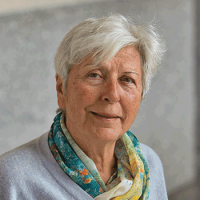Resolving Regional Conflicts: The Western Sahara and the Quest for a Durable Solution
A panel of experts discussed the possible solutions to the conflict in the Western Sahara region. They discussed the strengths and shortcomings of the Baker Plan (2003), which envisioned Saharan self-rule for five years, followed by a referendum with three options: integration with Morocco, autonomy, or independence. The panelists discussed the legal and political constraints to implementing such solutions.
On November 6, 2013, the Middle East Program at the Woodrow Wilson Center hosted a meeting, “Resolving Regional Conflicts: The Western Sahara and the Quest for a Durable Solution,” with Bernabé López García, Professor of Contemporary History of Islam, Autónoma University of Madrid; Anna Theofilopoulou, independent political analyst, writer, and former UN official and member of James Baker's negotiating team covering the Western Sahara conflict (1994-2006); and Marina Ottaway, Senior Scholar, Woodrow Wilson Center. Haleh Esfandiari, Director of the Middle East Program, moderated the event.
López García opened the conversation by providing background information about the conflict, noting that this meeting marked the 38th anniversary of the Green March (a demonstration to force Spain to give a disputed part of Sahara to Morocco). He said the UN describes the annexation of the Western Sahara as an “incomplete process of decolonization,” while Morocco claims the territory as its own. López García noted that in 2007, the government of Morocco suggested that a self-governing entity should govern the territory with some degree of autonomy for Western Sahara. However, this plan did not make any provisions for native inhabitants of the region to participate in political life. He described the post-Arab Spring context as a lost opportunity for national debate in Morocco on the cultural and political significance of the region. Furthermore, he explained that many are misinformed about the nature of the issue, and those who advocate for the rights of the Sahrawis are marginalized and criminalized.
Theofilopoulou explained that the Western Sahara negotiations have been at a standstill since 2004 after UN special envoy James Baker resigned. The original UN Settlement Plan proposed a dichotomous “integration vs. independence” approach, which presented the solution as “winner-take-all.” She explained that the conflict is defined under Chapter 6 of the UN charter, requiring the cooperation of involved parties in order to reach a resolution. She noted that the mediator, the UN, cannot be more interested than the involved parties to find a solution. Theofilopoulou said that because Morocco, Algeria, and the Polisario Front all have different aims and motives, it was largely rejected. She concluded that the UN should pull back until each side is ready to negotiate.
Ottaway began her presentation by explaining that there is no longer a Moroccan autonomy initiative. Instead, an “advanced decentralization” project was launched in March 2011 that would aim to give all provinces of Morocco a degree of self-government. Thus, the Western Sahara would not receive special provisions and would be administered in the same way as all other provinces. She continued that, in the larger context, the Western Sahara conflict has taken its place among the numerous intractable conflicts around the world that will not be solved in a clear manner on the basis of international law, absolute principles, or on the basis of restoring the status quo ante. Although the Sahrawis have a legal argument to their entitlement to the territory, it has become nearly impossible to determine who would have the right to vote on a referendum for independence. Ottaway concluded that a modification of the Baker Plan could only be put into practice under pressure from the UN and the international community—however, it seems unlikely that the Polisario, Algeria, and Morocco will be open to compromise.
By Samaa Ahmed, Middle East Program
Please find the speakers' presentations below.
Speakers

Former Senior Research Associate and Head of the Middle East Program, Carnegie Endowment for International Peace
Hosted By

Middle East Program
The Wilson Center’s Middle East Program serves as a crucial resource for the policymaking community and beyond, providing analyses and research that helps inform US foreign policymaking, stimulates public debate, and expands knowledge about issues in the wider Middle East and North Africa (MENA) region. Read more


Africa Program
The Africa Program works to address the most critical issues facing Africa and US-Africa relations, build mutually beneficial US-Africa relations, and enhance knowledge and understanding about Africa in the United States. The Program achieves its mission through in-depth research and analyses, public discussion, working groups, and briefings that bring together policymakers, practitioners, and subject matter experts to analyze and offer practical options for tackling key challenges in Africa and in US-Africa relations. Read more

